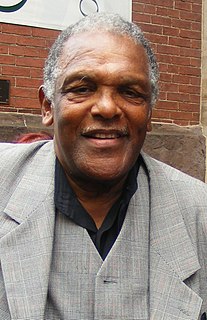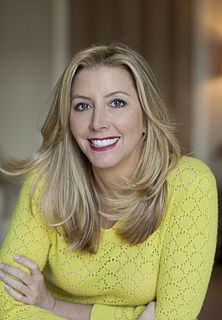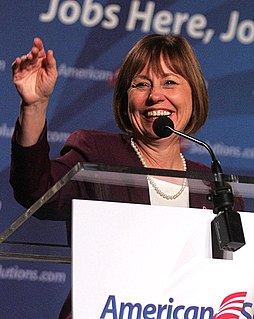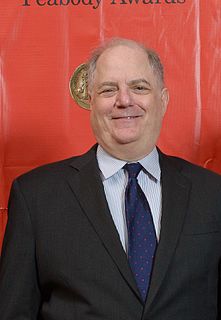A Quote by Dana Goldstein
What happens from about 1954 to the late 1980s, is that we see a huge wave of optimism that school desegregation is going to be the way to improve educational outcomes for poor children of color. And we see a consensus build on the left and in the center that this is going to be a transformative education movement like none other we've seen in American history.
Related Quotes
I have to throw in on a personal note that I didn't like history when I was in high school. I didn't study history when I was in college, none at all, and only started to do graduate study when my children were going to graduate school. What first intrigued me was this desire to understand my family and put it in the context of American history. That makes history so appealing and so central to what I am trying to do.
Well, let's see. There's-of course in the great history of America there have been rulings that's never going to be absolute consensus by every American, and there are those issues, again, like Roe v. Wade, where I believe are best held on a state level and addressed there. So, you know, going through the history of America, there would be others but...
The kind of organic wave, the way that waves move, and I'm not just talking about feminism, the way that a social movement might rise like a wave. It's harder to build any kind of wave now. Things are important to you and then they recede within a day. That's the only thing that keeps me from believing that there's going to be any one organic big wave; although the Americana (music) thing has been happening for a while.
The education justice movement and the prison justice movement have been operating separately in many places as though they're in silos. But the reality is we're not going to provide meaningful education opportunities to poor kids, kids of color, until and unless we recognize that we're wasting trillions of dollars on a failed criminal justice system.
When you hear Donald Trump say he wants to make America great again, when we do that I truly do believe the American people are going to be standing taller, they're going to see that real change can happen after decades of just talking about it. And when that happens the American people are going to stand tall, stand together and we'll have the kind of unity that's been missing for way too long.
When you’ve had children, your body changes; there’s history to it. I like the evolution of that history; I’m fortunate to be with somebody who likes the evolution of that history. I think it’s important to not eradicate it. I look at someone’s face and I see the work before I see the person... You’re certainly not staving off the inevitable. And if you’re doing it out of fear, that fear’s still going to be seen through your eyes. The windows to your soul, they say.
We're foolish if we think we're going to end mass incarceration unless we are willing to deal with the reality that huge percentages of poor people are going to remain jobless, locked out of the mainstream economy, unless and until they have a quality education that prepares them well for the new economy. There has got to be much more collaboration between the two movements and a greater appreciation for the work of the advocates in each community. It's got to be a movement that's about education, not incarceration - about jobs, not jails.
I hadn't really thought about going to college. Nobody in my family went away to school. The other piece of that was I didn't see anybody else in my hometown going to college to give me some kind of influence or something like that you might want to think about. I didn't see any of that. Therefore I thought it was never there. What happened was that my high school coach intervened. Had he not intervened to the measure he intervened, I probably wouldn't have gone.































